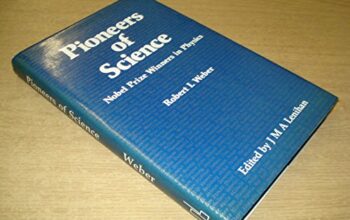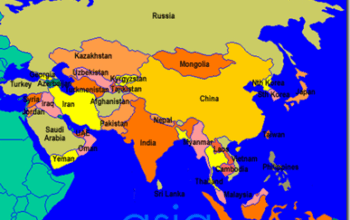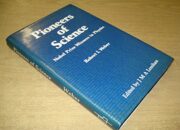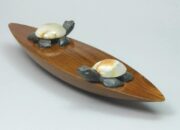As we embark on a new year, aspiring physicists and seasoned researchers alike confront a compelling mandate: to delineate the goals that will steely resolve their intellectual pursuits and scientific investigations. The discipline of physics, with its profound intricacies and expansive horizons, provides a rubric for examining the fundamental constituents of matter and the forces that govern their interactions. This article will elucidate diverse types of content that physicists may encounter throughout the year, emphasizing the manifold avenues of learning, inquiry, and dissemination that characterize this dynamic field.
First and foremost, it is essential to acknowledge the cornerstone of physics education: the textbooks that serve both as foundational pillars and intricate roadmaps of established theories. Textbooks are not monolithic; they exist along a continuum ranging from undergraduate materials that introduce core concepts, such as classical mechanics and thermodynamics, to advanced graduate texts that delve into quantum mechanics and relativistic physics. Within the context of physics education, it is vital to establish explicit goals for reading, comprehension, and application. Scholars may resolve to tackle specific chapters weekly, ensuring they grasp the primal equations and comprehend theoretical implications.
In alignment with textbook study, laboratory work contributes significantly to the experiential learning of physics. The laboratory serves as a crucible where theoretical principles are instantiated and empirical phenomena are elucidated. Notably, a year dedicated to physics might include setting particular objectives for experimental projects. This could entail refining skills in data collection, statistical analysis, and experimental design. Immersing oneself in this empirical domain leads to an appreciation for the nuanced interplay between theory and practice. Scholars may also pursue innovative experimental techniques, opting to engage in interdisciplinary research that utilizes novel methodologies from fields such as materials science or computational modeling.
Furthermore, scholarly articles constitute an indispensable vehicle for the dissemination of groundbreaking research and theoretical advancements. As a physicist, establishing a goal to regularly engage with high-impact journals is prudent. The practice of critically reading articles encourages a deeper understanding of current trends, emerging theories, and technological applications. Goals may encompass the identification of key research questions that remain unanswered, as well as the contemplation of potential avenues for future investigations. Joining academic societies and attending conferences fosters networking opportunities, allowing physicists to present their findings, exchange ideas, and cultivate collaborative relationships that may enhance research Endeavours.
The increasing prominence of popular science communications also merits attention within the ambit of physics. Books, articles, podcasts, and documentaries play an essential role in making complex scientific concepts accessible to a broader audience. Setting a goal to engage with popular science can broaden one’s perspective and stimulate imaginative tangents. The critical examination of popular science literature offers insights into public perception and the societal implications of scientific advancements. One might aspire to contribute to these discussions by writing articles or creating content that engages the layperson while still maintaining scientific rigor, thereby cultivating a science-literate populace.
Moreover, digital platforms have revolutionized the way physics is shared and consumed. Online courses, webinars, and virtual workshops allow learners from disparate backgrounds to acquire knowledge and skills. A goal to participate in a specific number of online courses or webinars per semester can lead to proficiency in contemporary topics such as astrophysics, condensed matter physics, or biophysics. Engaging in discussion forums and virtual study groups facilitates collaborative learning and highlights the importance of community in the pursuit of knowledge. The digital age has rendered physics education more adaptable, democratizing access to expert resources that were previously confined to traditional classrooms.
In conjunction with these academic explorations, practical applications of physics in technology stand as a testament to the field’s relevance in contemporary society. Engineers and technologists regularly rely on foundational physics principles to innovate and improve systems across sectors. Setting goals that align with industrial applications of physics empowers researchers to contribute to technological advancements. For instance, one might resolve to explore the realm of renewable energy technologies or the development of quantum computers, garnering knowledge on how physical theories animate these innovations.
Additionally, ethical considerations surrounding scientific research cannot be overlooked. As physicists navigate complex moral landscapes regarding technology deployment and environmental impacts, a commitment to ethical practice becomes paramount. Establishing goals that reflect a responsible approach to research and technology application allows physicists to maintain integrity and social responsibility in their work. This entails self-reflection on the broader implications of research outcomes, as well as a commitment to fostering equity and sustainability within scientific communities.
As the year unfolds, it is prudent to reflect on the multitude of pathways that physics encompasses. From the foundational study of principles through textbooks to the progressive engagement with cutting-edge research and technological applications, the goals set can shape the trajectory of academic and professional development. By integrating diverse forms of content, from experimental practice to popular science communication, physicists can cultivate a rich and multifaceted understanding of their discipline. In doing so, they not only advance their own knowledge but also contribute to the evolving narrative of physics as it intersects with humanity’s greatest challenges and aspirations.
Ultimately, the pursuit of physics is an odyssey marked by continuous inquiry and discovery. Setting clear, actionable goals at the outset of the year cultivates a proactive approach to the infinite expanse of questions and problems that lie ahead. As physicists forge their paths, they will invariably contribute to the monumental tapestry of knowledge that underpins our comprehension of the universe.










